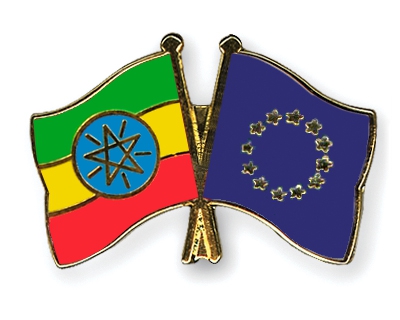On 7 September 2016, EU-focused website Euractiv published a baseless article suggesting the European Commission was considering to reduce its financial support to Ethiopia channeled through the EU Trust Fund for Africa (EUTF) (“No Emergency Trust Fund money goes to Ethiopian government, Commission stresses”, 7 September 2016, euractiv.com).
The news article wrongly implies that the European Commission wants to avoid cooperating directly with the Ethiopian Government after the recent protests in the country, and provide development funding to non-governmental structures only. Furthermore, after reading this article, some readers could have the impression that the European Commission is withdrawing its financial development support and coming back on its commitment to work with the Ethiopian government.
To rectify these unsubstantiated claims, here are four facts that need to be taken into consideration:
- The European Commission indeed implements projects under the EU Trust Fund (EUTF) through EU Member States Agencies, International Organizations, the private sector and non-governmental organizations for all of the 20 projects so far approved under the Horn of Africa window in December 2015 and April 2016. They comprise regional projects benefiting all IGAD countries and bilateral projects with Sudan, South Sudan, Somalia, Kenya and Uganda, in addition to Ethiopia. The decisions to implement all EUTF-funded projects according to those modalities goes back to the very start of the preparation of the EUTF. There is no singling out of Ethiopia.
- Contrary to what the news article might suggest, there are currently no planned discussions to review or suspend any payments regarding the EUTF.
- Even though Ethiopia is the largest beneficiary of EUTF funding in the Horn of Africa, the funding provided under this financial vehicle is significantly lower than the funding allocated by the EU under the National Indicative Programme with Ethiopia. To put it in perspective: over approximately the same period of time, the National Indicative Programme for Ethiopia is larger than the whole of the Horn of Africa window of the EUTF. Whilst the bilateral projects already approved for Ethiopia under the EUTF amount to EUR 97 million (in addition to those regional projects in which Ethiopia is an integral part thereof), the total financial envelop of the National Indicative Programme totals over EUR 700 million. The European Commission has signed the National Indicative Programme with the Government of Ethiopia, and in this framework projects are implemented through the signature of Financing Agreements, which foresee different implementation modalities consisting of various degrees of decentralization and use of Government’s structures. There is no plan to review these working modalities.
- Projects under the EUTF are being implemented effectively. The EU Commission recently contracted the full call for proposals of RESET II under the EUTF, amounting to €44 million, and started to make the first disbursements to the partners who will implement it. At present, two out of the three EUTF-funded projects for Ethiopia (RESET II and the EUR 20 million SINCE with the Italian Development Cooperation) are contracted. The remaining EUR 30 million project on the Regional Development Programme for Ethiopia (to support long term needs of refugees and hosting communities in the Shire and Somali regions) is undergoing a competitive call for proposals. The applications from candidates are expected before the end of September, with contracting expected take place in November 2016.
Contact: info@ethiopianembassy.be / +32 2 771 32 94




